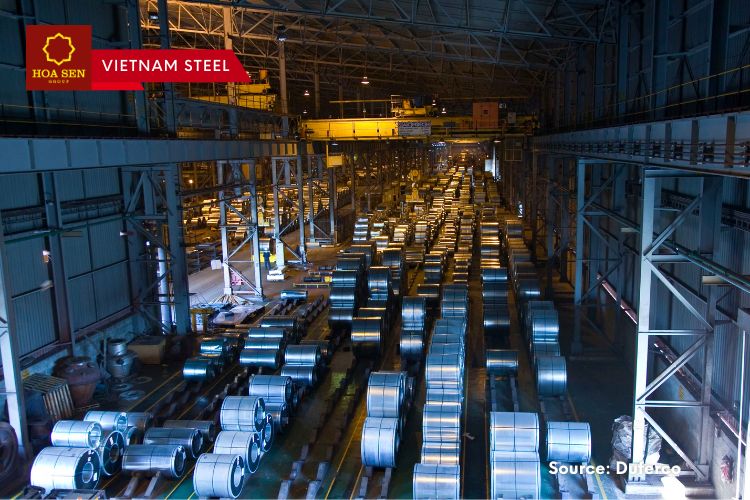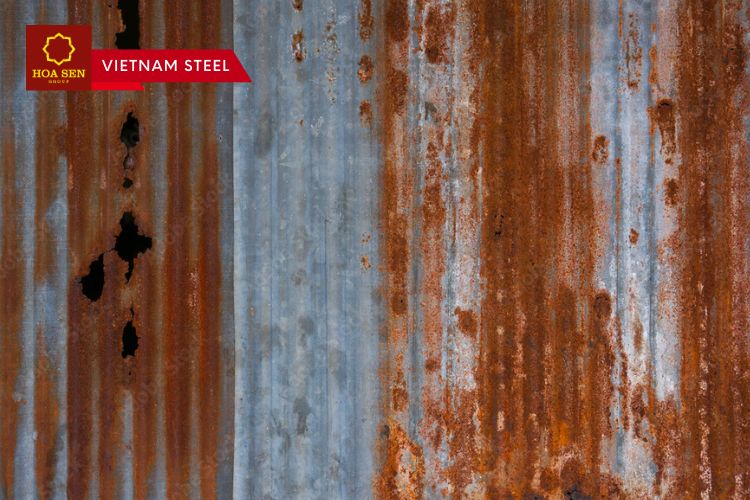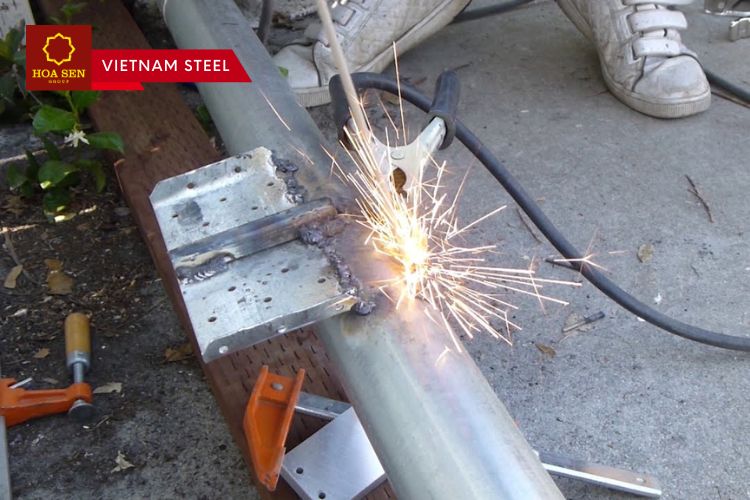Does Galvanized Steel Rust?
If the concern lies in preventing rust, there are two options: either choose a non-corrosive metal or apply a protective coating to a susceptible metal. However, opting for non-rusting metals such as stainless steel often incurs a higher cost and may compromise performance.
On the other hand, using a coating allows the utilization of less expensive and more workable metals. While the paint is commonly considered as a protective coating for mild steel, its longevity is limited. This brings us to the topic of galvanizing and the question that holds significant importance: Does galvanized steel rust?
The answer to this question is both affirmative and negative. Galvanization entails the application of a zinc coating over steel, which offers prolonged resistance against rust and corrosion compared to paint, often surpassing 50 years or more.
However, eventually, the insidious process of rust formation can still occur. If you're curious about the reasons behind this, read on for further insights about the question does galvanized steel rust?
Read More: Safely Welding Galvanized Steel: A Step-by-Step Guide
Exploring the Mechanism of Rust Prevention through Galvanization
To comprehend how galvanization effectively thwarts rust formation, let's begin by establishing some fundamental definitions. Corrosion denotes the deterioration of metal when exposed to oxygen, while rust specifically refers to the corrosion process experienced by iron. In the presence of oxygen, iron oxide is generated, leading to the detachment of oxidized layers from the metal's surface and exposing fresh metal to further oxidation. So, does galvanized steel rust?
Metals such as aluminum and stainless steel, which are resistant to rust, form a protective oxide layer on their surfaces that acts as a barrier against corrosion. Another intriguing metal that undergoes oxidation without rusting is zinc, and what makes zinc particularly captivating is its ability to bond effectively with steel. Therefore, when using galvanized steel, rust is not a concern.
To bestow steel with a longer-lasting coating compared to paint, the solution lies in enveloping it with a layer of zinc—a process known as galvanization. This process ensures that galvanized steel remains highly resistant to rust and corrosion. So, does galvanized steel rust?
Zinc acts as a shield, impeding the access of oxygen and water to the underlying steel. Initially, it forms a layer of zinc oxide on the surface, which, in the presence of moisture, transforms into zinc carbonate. This produces a lackluster gray patina on the metal that remains insoluble in water, effectively halting any further chemical alterations. So, does galvanized steel rust?
You may wonder why galvanized steel doesn't endure indefinitely. The answer lies in the fact that over an extended period, under specific conditions, the zinc carbonate layer may slowly break down. So, does galvanized steel rust? Yes, but only over an extended timeframe and under certain conditions.
The factors that can impact galvanized steel's resistance to rust include relative humidity, exposure to sodium chloride (salt), frequent wetting or soaking, sulfur dioxide pollution, exposure to hydrogen sulfide, strong alkalis, acid rainwater runoff, and the presence of moss and lichen. Considering these factors can help mitigate any potential rusting. So, does galvanized steel rust? It may, but its resistance to rust is significantly higher compared to other materials.
In conclusion, galvanized steel offers robust protection against rust and corrosion. While it may experience rusting over an extended period and under specific conditions, its overall durability and longevity make it a reliable choice.
So, does galvanized steel rust? Yes, but very slowly and under specific circumstances. Nonetheless, galvanized steel remains an excellent option for various applications due to its extensive track record of durability and corrosion resistance.

Variables Influencing the Performance of Galvanized Steel
While it is true that zinc carbonate exhibits insolubility, there are certain conditions under which it may gradually deteriorate. These factors encompass:
- Relative humidity surpassing 60%: Environments with high humidity levels, such as tropical regions or hothouses employed for cultivating tropical plants.
- Presence of sodium chloride (salt) in water or air: Coastal or marine settings where saltwater exposure occurs.
- Instances where the galvanized surface is frequently subjected to wet or soaked conditions: This could include scenarios like undergoing car washes.
- Urban atmospheres are contaminated with sulfur dioxide pollution.
- Exposure to hydrogen sulfide emanating from sources like volcanoes, hot springs, natural gas, or sewer gas.
- Strong alkalis, including plaster and cement, particularly those containing chlorides and sulfates, with Portland cement being a prominent example.
- Acidic rainwater runoff from roofs adorned with wooden shingles.
- The presence of moss and lichen facilitates moisture retention and creates localized high-humidity microclimates.
- These aforementioned factors can influence the long-term performance and durability of galvanized steel.
Influence of Local Environmental Factors on Galvanized Steel
When considering the utilization of galvanized steel, it is crucial to assess the prevailing local environmental conditions. Specifically, the following aspects should be taken into account:
- Air: Evaluate the humidity levels, and exposure to salt, acids, or industrial pollutants. While desert air poses minimal concerns, tropical cities may present potential challenges due to higher humidity and increased exposure to corrosive elements.
- Soil: If galvanized steel is buried in soil, such as when used as a base for a fence post, it will be subjected to heightened moisture levels. However, the extent of this impact varies depending on the soil type and overall conditions, such as the presence of muddy and wet soil or sandy and dry soil.
- Temperature: Elevated temperatures alone do not cause zinc breakdown as long as they remain below the zinc melting point of 787°F (420°C). However, when combined with corrosive factors like humidity and industrial pollution, high temperatures can accelerate the corrosion process. Conversely, low temperatures have no detrimental effect on the galvanized coating.
Considering these local environmental factors is essential to accurately assess the potential effects and longevity of galvanized steel in a given setting.
How Long Do You Need it to Last?
Delving into the subject of whether galvanized steel is susceptible to rust, we find that it does, indeed, exhibit this natural phenomenon. However, it is crucial to note that the progression of rusting is exceptionally gradual, occurring at a pace that rarely poses a substantial problem.
The longevity and reliability of galvanized steel are exemplified by its extensive historical usage spanning over two millennia. Does galvanized steel rust? Rest assured that, considering its track record, galvanized steel is highly likely to fulfill the demands and expectations of your specific application without significant concerns arising.
Read More: What is Galvanized Steel? The Galvanized Steel Manufacturing Process
Vietnam Steel by Hoa Sen Group

